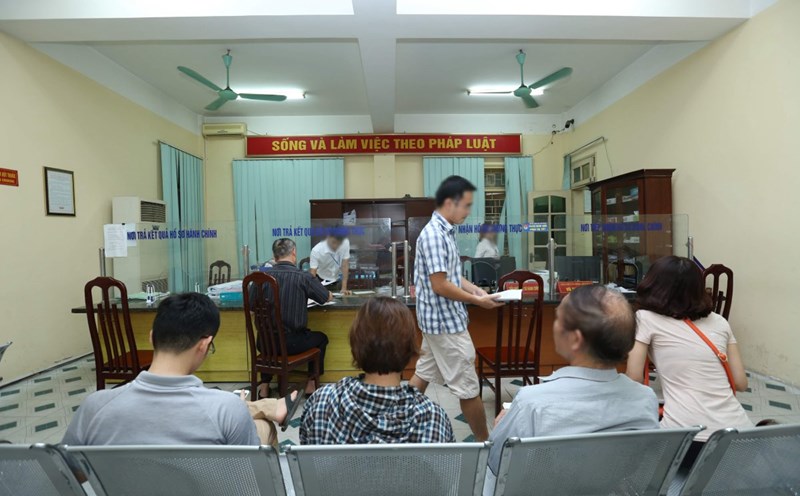Operating a two-level government, a large workload, heavy responsibility, and great pressure. Not to mention, many localities are currently experiencing a surplus of cadres but lack of qualified human resources.
Talking to Lao Dong reporter, a commune-level cadre shared that each commune and ward-level specialist has to work with high intensity, day and night, on average handling 1,500-2,000 records per month. However, their salary only ranges from an average of 7-8 million VND/month.
Because the salary is still low, it is difficult to recruit personnel with good expertise, that is the reality of many localities.
Some localities have resolved the imbalance of human resources by increasing staff to "set up villages". Typically, Da Nang, personnel mobilization, along with many support policies including housing arrangement, travel support, living expenses, priority for considering early salary increase, supplementing planning, and prioritizing work arrangement after completing tasks.
Even in a locality with abundant human resources like Ho Chi Minh City, there is an imbalance in human resources at the ward and commune level.
At the Socio-Economic Conference held on September 9, Chairman of the Ho Chi Minh City People's Committee Nguyen Van Duoc emphasized: "The uneven allocation of cadres has caused some commune and ward chairmen to resign due to too much work pressure. The city will continue to review and adjust to overcome this situation".
For large cities, attracting cadres with professional qualifications is still difficult, but in mountainous areas and remote areas it is even more difficult.
Deploying technology applications and digitizing administrative activities requires human resources good at information technology. However, with a salary of 7 - 8 million VND/month, it will not be able to attract highly qualified people.
The question is how much salary is appropriate?
In remote localities, with a shortage of human resources and recruiting skilled people, the salary must be enough to cover a family's living expenses. Many opinions suggested that it is about 20 - 25 million VND/month to be competitive in the labor market.
However, the salary policy is applied uniformly nationwide.
In response to opinions related to salary increases for cadres and civil servants, the Ministry of Home Affairs responded that the salary increase proposal will be studied by ministries and specialized agencies and submitted to competent authorities for consideration and decision when the country's resources are balanced.
Streamlining the apparatus will reduce staff, salary funds and other public spending. This budget source is used to increase salaries for cadres and civil servants, ensuring a stable life and work security.
Few people, working many jobs, receiving high salaries will serve well and maintain integrity, that is the common wish of cadres and civil servants.








